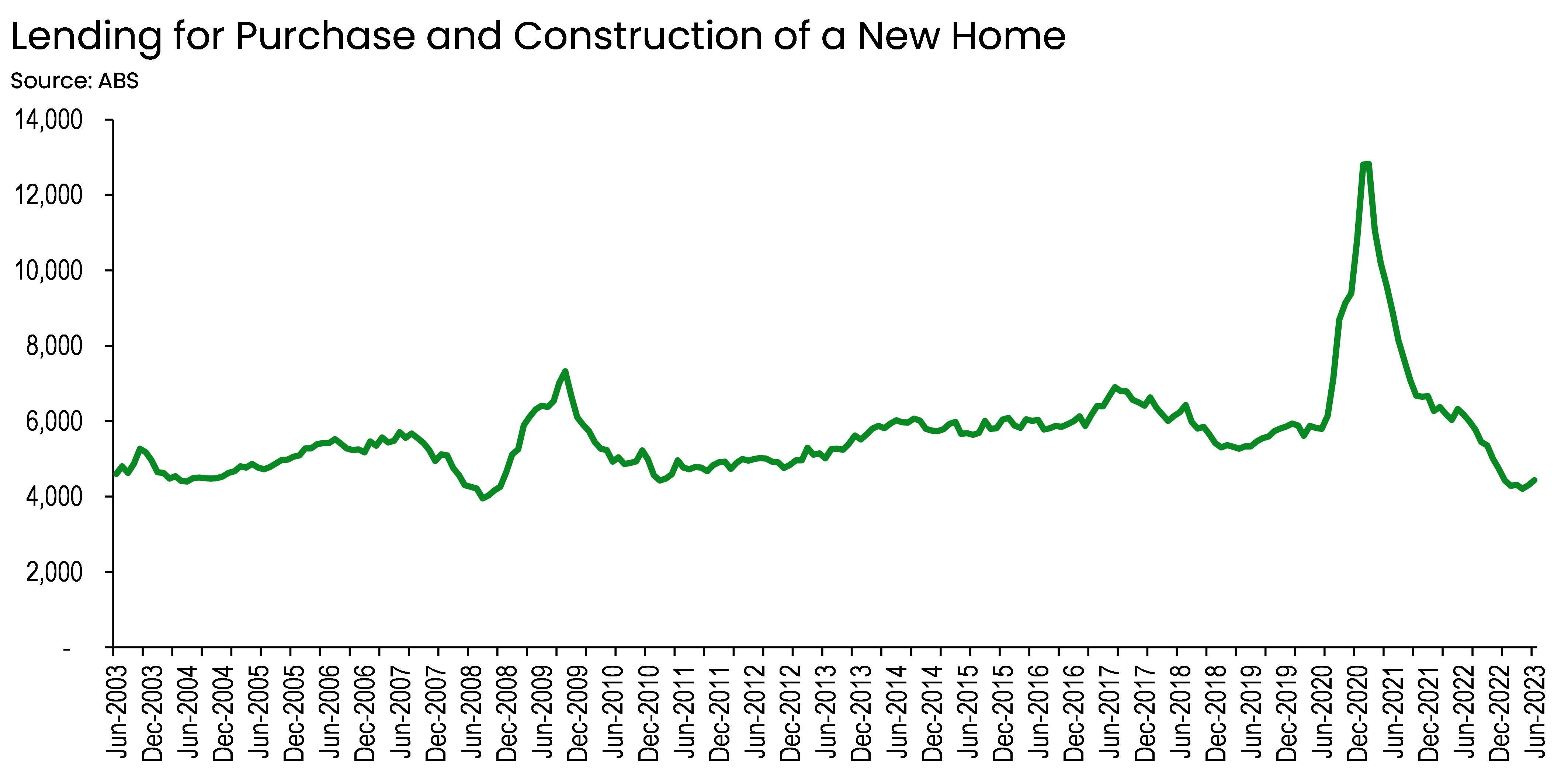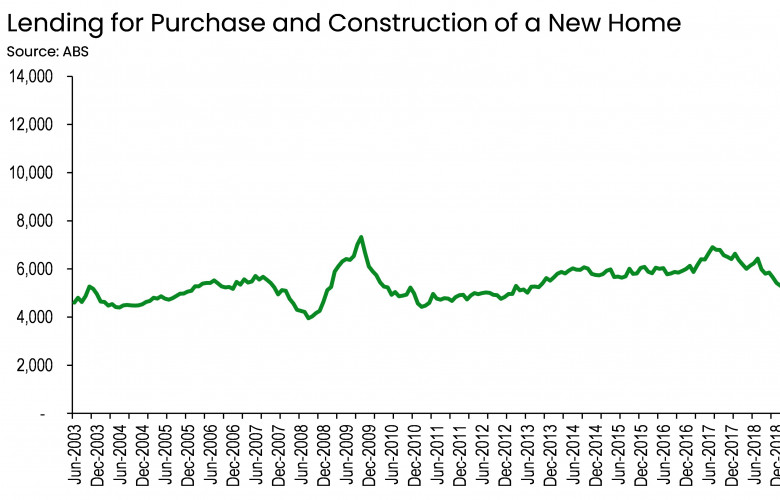The RBA has gone too far says HIA
Contact
The RBA has gone too far says HIA
“The number of loans issued for the purchase and construction of a new home has fallen to their lowest level since 2008, and the number of detached building approvals has fallen to its second lowest month since 2013. This is despite the urgent need to increase the supply of new homes,” stated HIA’s Chief Economist, Tim Reardon.
“The number of loans issued for the purchase and construction of a new home has fallen to their lowest level since 2008, and the number of detached building approvals has fallen to its second lowest month since 2013. This is despite the urgent need to increase the supply of new homes,” stated HIA’s Chief Economist, Tim Reardon.
The ABS released the Lending to Households and Businesses data for June 2023 today, as well as the same month’s building approvals data for detached houses and multi-units covering all states and territories.
“When the RBA first increased the cash rate there was a record volume of houses under construction, and a record volume of new houses approved, but not commenced. This large volume of work in the pipeline has obscured the adverse impact of rising rates on the wider economy,” added Mr Reardon.
“Compounding the rise in the cash rate, increased government regulatory costs, rising land prices and construction costs are further impeding an increase in the supply of new homes.
“This lack of new work entering the pipeline threatens to worsen the affordability crisis.
“Australia has a structural undersupply of housing, with rental vacancy rates around the country at record lows, driving rents and dwelling prices to new heights.
“The return of overseas workers and students, without an equivalent boost to housing supply, will exacerbate the situation.
“The only solution to addressing this crisis is to increase the supply of new housing.
“Against the headwinds of rising interest rates, governments need to respond by reducing the tax on housing, attract more investment, improve the supply of land for greenfield and brownfield projects and invest in new public housing stock.
“At its core, the shortage of housing is caused by a lack of investment. Investors are crucial to delivering new housing supply, especially in the increasingly important apartment sector. Despite this, governments and regulators have squeezed investors, especially foreign investors, out of the market with lending restrictions, fees and tax surcharges.
“Increased investment is also required from owner occupiers and from government.
“With the volume of houses commencing construction expected to reach decade lows in 2024, this is the ideal time for governments to invest in public housing stock. During down cycles, government will get a better return on their investment and help maintain the skill base in the industry that will be required in future years.
“Governments cannot resolve this shortage of housing stock by increasing or imposing more taxes on housing,” concluded Mr Reardon.






